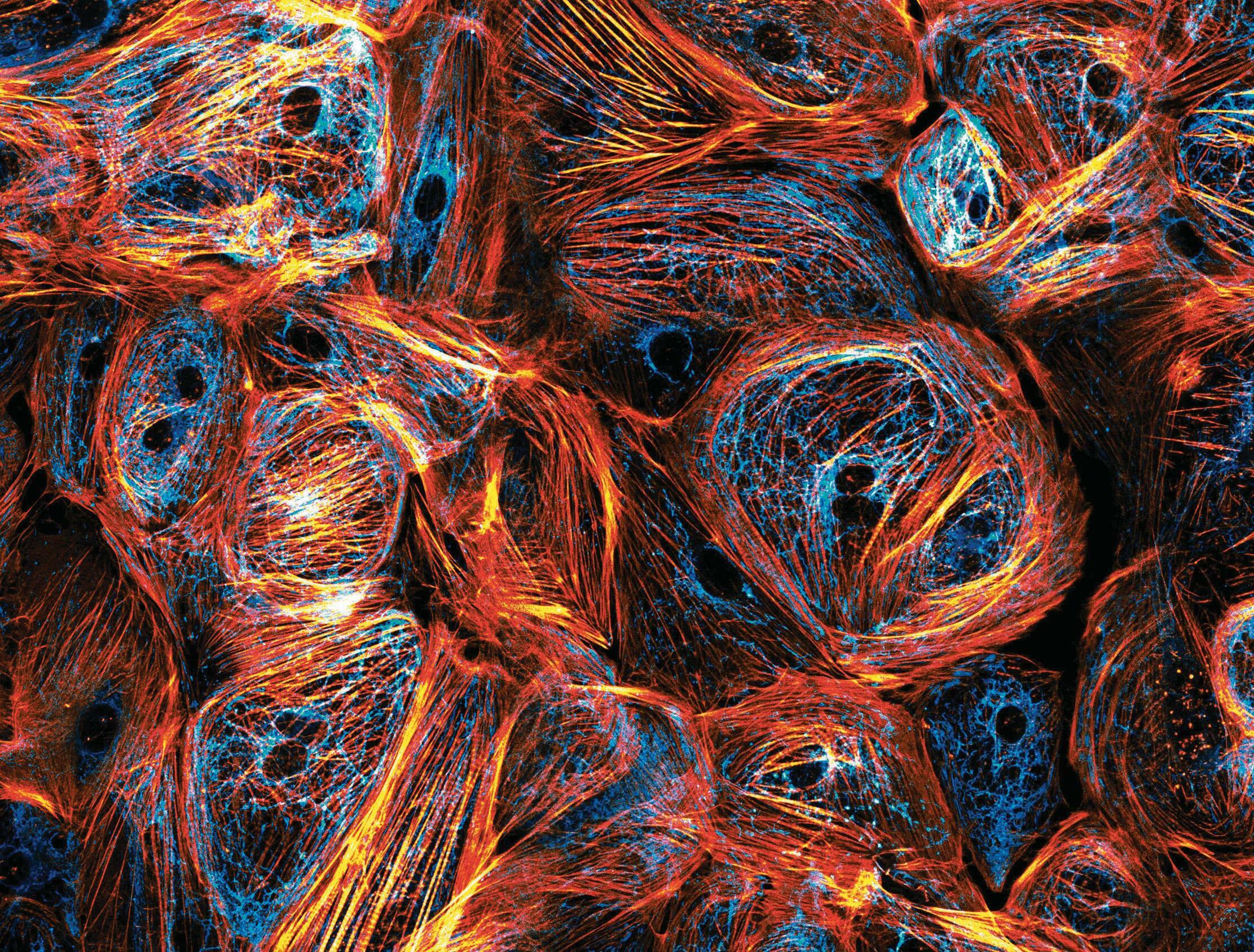Try GOLD - Free
EYE OPENER
BBC Science Focus
|January 2025
Though this might not be what you see on a typical Valentine's Day card, it is what the human heart actually looks like.
-

Have a little heart
FRANKFURT, GERMANY
Well... what it looks like very close-up.
What you're actually seeing are the actin-based protein structures within cells that form sarcomeres – the structures responsible for making your heart beat. These structures are woven with highly interconnected mitochondrial networks (seen here in blue) that are crucial for the heart's energy supply.
These sarcomeres are particularly special as they're made from human induced pluripotent stem (iPS) cells. "Heart cells can't regenerate after damage," says Dr Till Stephan, a German cell biologist at Goethe University in Frankfurt, who took this award-winning picture. "So cardiomyocytes [heart cells] derived from iPS cells may one day be routinely used to repair heart injuries."
Stephan took this photo using microscopy, which he describes as "a vital tool in life sciences". Microscopy allows researchers to study individual cells at a subcellular level, unveiling the complexity of structures and processes within them.
This story is from the January 2025 edition of BBC Science Focus.
Subscribe to Magzter GOLD to access thousands of curated premium stories, and 10,000+ magazines and newspapers.
Already a subscriber? Sign In
MORE STORIES FROM BBC Science Focus

BBC Science Focus
World's biggest cobweb is home to 100,000 spiders
Spiders don't normally create such large colonies, so there's no need to worry about finding one in your basement
1 min
February 2026

BBC Science Focus
A dementia vaccine could be gamechanging – and available already
Getting vaccinated against shingles could protect you from getting dementia, or slow the progression of the disease
1 mins
February 2026

BBC Science Focus
DATA IN SPACE
An unusual spacecraft reached orbit in November 2025, one that might herald the dawn of a new era.
7 mins
February 2026

BBC Science Focus
Climate change is already shrinking your salary
No matter where you live, a new study has found warmer temperatures are picking your pocket
4 mins
February 2026

BBC Science Focus
A MENTAL HEALTH GLOW-UP
Forget fine lines. Could Botox give you an unexpected mental health tweakment?
3 mins
February 2026
BBC Science Focus
Most people with high cholesterol gene don't know they have it
Standard testing struggles to detect the condition
1 mins
February 2026

BBC Science Focus
HOW CAN I BOOST MY IQ?
If you're serious about getting smarter, it's time to ditch the brain-training apps
4 mins
February 2026

BBC Science Focus
Humans are absolutely terrible at reading dogs' emotions
Think you can tell how our furry friends are feeling? Think again
1 mins
February 2026

BBC Science Focus
HOW TO TEACH AI RIGHT FROM WRONG
If we want to get good responses from AI, we may need to see what it does when we ask it to be evil
3 mins
February 2026

BBC Science Focus
What Australia's social media ban could really mean for under-16s
Many people think social media is bad for our kids. Australia is trying to prove it
5 mins
February 2026
Listen
Translate
Change font size
